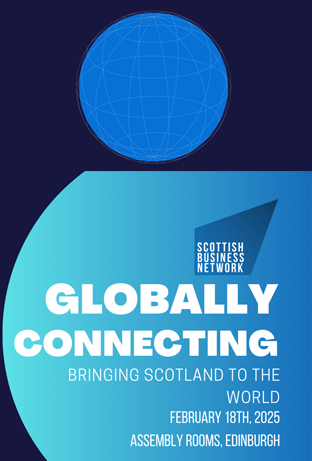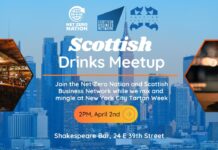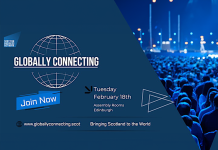Russell Dalgleish reports from Barcelona.
The Mobile World Congress (MWC) 2025 kicked off in Barcelona on Monday, March 3rd, with an electrifying atmosphere that drew over 100,000 visitors from more than 200 countries. This year’s event is expected to surpass €500 million in economic benefits for the city, solidifying Barcelona’s position as a global tech hub alongside other major tech gatherings like WebSummit in Lisbon and Tech Week in London.
The COVID-19 pandemic’s impact seemed a distant memory as attendees engaged in traditional networking activities like handshaking, hugging, and exchanging business cards. The event’s unique buzz was palpable, with each exhibitor showcasing their vision for the future of technology.
Artificial Intelligence (AI) dominated discussions across the conference, with robotics, wearables, telecom and automation emerging as some of the most exciting applications. Companies unveiled advanced AI-powered robots designed to enhance efficiency in industries ranging from manufacturing to customer service. The seamless integration of AI into these systems underscored its rapid evolution and potential to reshape industries globally. For those skeptical about AI being mere marketing hype, MWC 2025 provided convincing evidence of its real-world impact and future potential.
The first keynote session, “The Gateway to a New Future,” focused on the GSMA Open Gateway initiative, which aims to redefine the telecom sector through collaborative APIs. Key speakers included Mats Granryd and Vivek Badrinath from GSMA, along with industry leaders like Vicki Brady (Telstra), Sunil Bharti Mittal (Bharti Airtel), and Marc Murtra (Telefónica). They discussed the transformative potential of Open Gateway and the role of telecom networks in driving digitalization across economies, emphasizing AI-driven networks and 5G expansion.
The opening ceremony was attended by King Felipe VI, who officially inaugurated the congress. In his address, he reaffirmed Spain’s support for Ukraine’s sovereignty, emphasizing the importance of solidarity in the face of geopolitical challenges. His remarks set a serious yet hopeful tone for the event, highlighting the intersection of technology, politics, and global cooperation.
Standout Product Launches
Several companies made significant announcements on the exhibition floor:
Lenovo unveiled a concept laptop called “the flip,” featuring a large, flexible super-tall display. While visually striking, its practicality in everyday use remains to be seen.
TCL introduced the TCL 60 Series smartphones, which incorporate NXTPAPER technology to enhance visual comfort by mimicking the experience of reading from paper, reducing eyestrain.
Xpanceo showcased futuristic smart contact lenses with virtual reality integration, offering features like night vision. This innovation highlights the rapid advancements in wearable technology and augmented reality.
MWC 2025 also featured 4 Years From Now (4YFN), a platform dedicated to startups and emerging technologies. This section provided a glimpse into the future of entrepreneurship, with startups showcasing cutting-edge solutions in fintech, healthtech, and deep tech sectors. Notable highlights included AI-driven fintech platforms, groundbreaking healthtech innovations for personalized medicine, and discussions on the potential of quantum computing in commercial applications. The energy at 4YFN was palpable, reinforcing its role as a launchpad for the next generation of tech disruptors.
Day one of MWC 2025 set a dynamic tone for the rest of the conference, showcasing the intersection of AI, telecom, and cutting-edge product launches. With AI reshaping industries, wearables pushing boundaries, and telecom innovations promising a more connected future, MWC 2025 solidified its position as a global hub for technological advancements. As the event continues, it will be exciting to see how these technologies evolve and shape the future of the tech industry.
This year’s MWC theme, “Converge. Connect. Create.,” reflects the event’s role in bringing together social policy, business leadership, and digital innovation. Key focus areas include:
5G Inside: The next phase of 5G rollouts, focusing on ROI through new services, cost reductions, and strategic partnerships.
Connect X: Emphasizing the growth of connected IoT devices and the need for open, seamless, sustainable, and secure network solutions.
AI+: Exploring the practical deployment and impact of AI, including process optimization and personalized experiences.
Enterprise Re-invented: Discussing how enterprises adapt to technological changes, leveraging AI, 5G, Edge Computing, and more.
The event features participation from over 2,700 technology companies, making it a truly global platform for innovation and collaboration. Leaders from around the world, including Shri Jyotiraditya Scindia, are attending to represent their countries’ interests and unveil new initiatives, such as the Bharat Pavilion.
MWC 2025 is not just about showcasing current innovations but also about setting the stage for future technologies. Discussions around quantum computing, extended reality, and AI underscore the transformative power of these technologies in reshaping industries and societies.









